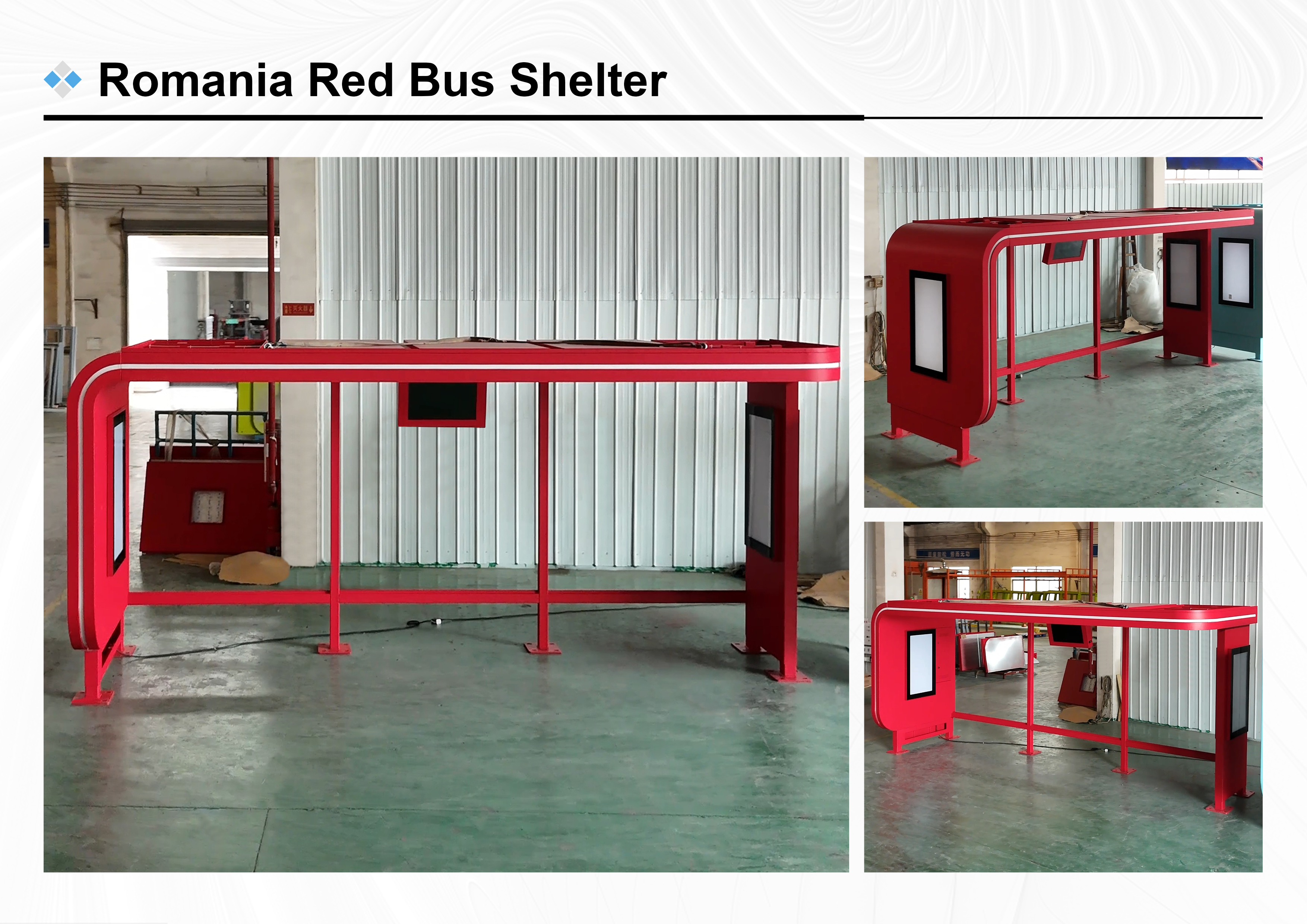As cities embrace smarter, greener public transit systems, bus shelter manufacturers are at the forefront of redefining urban mobility. Combining decades of engineering expertise with cutting-edge IoT technology, companies like YEROO is revolutionizing the industry with smart bus shelters that prioritize sustainability, safety, and user engagement.
1. Expertise in Manufacturing & Global Reach
Leading bus shelter manufacturers in China, such as YEROO leverage over 25 years of experience and 31,000-square-meter production facilities to deliver high-quality shelters tailored to diverse climates and urban needs. With exports to 109+ countries, their products meet international standards like CE and RoHS, ensuring durability and compliance.
Key Features of Traditional Shelters:
Robust Materials: Stainless steel, galvanized steel, and laminated glass for weather resistance.
Customization: Modular designs allow adjustments in color, size, and advertising configurations (single/double-sided lightboxes).
Global Certifications: ISO 9001 certification ensure quality and safety.
2. Smart Bus Shelter Innovations
Modern smart bus shelters integrate IoT, AI, and renewable energy to enhance user experience and city operations:
Core Technologies:
Real-Time Transit Updates: Solar-powered e-ink displays or LED screens show bus arrivals, route changes, and service alerts. For instance, Yuantai’s shelters feature 6mm tempered glass panels with 54W LED lighting and optional solar power systems for off-grid functionality.
Interactive Kiosks: Touchscreens provide city guides, weather updates, and emergency alerts. Some models include voice assistants like "City Transport Xiao Man" for route queries.
Health & Safety: UV sterilization systems and panic buttons address pandemic-era needs, while CCTV cameras enhance security.
Sustainability Focus:
Solar Integration: Panels power lighting, charging stations, and digital displays, reducing reliance on grid electricity.
Eco-Friendly Materials: Shelters made from 3D-printed construction waste or recyclable polymers align with circular economy goals.

3. Custom Solutions for Smart Cities
Top manufacturers collaborate with municipalities to deliver tailored smart bus shelters:
Customizable Options:
Modular Design: Adjust roof styles (laminated glass, PC panels), seating (heated benches), and accessibility features (tactile paving, wheelchair ramps).
Smart Add-Ons:
LED Advertising Displays: Dynamic ads with QR codes for interactive campaigns.
Environmental Sensors: Monitor air quality, temperature, and foot traffic to optimize urban planning.
Autonomous Vehicle Integration: Future-ready shelters act as hubs for e-scooters and self-driving shuttles.
Case Study: YEROO a pioneer since 2000, has deployed over 5,000 projects worldwide, including stainless steel shelters with 25-year warranties and corrosion-resistant coatings.
4. Why Choose Leading Manufacturers?
End-to-End Services: From design (free 3D renderings) to installation and maintenance.
Scalability: Capable of mass production (20-day delivery) for city-wide deployments.
As urban landscapes evolve, partnering with a trusted bus shelter manufacturer ensures access to smart bus shelters that blend innovation, durability, and sustainability. From solar-powered IoT systems to pandemic-safe designs, these shelters are reshaping public transit into a safer, greener, and more connected experience.








 Share to:
Share to: